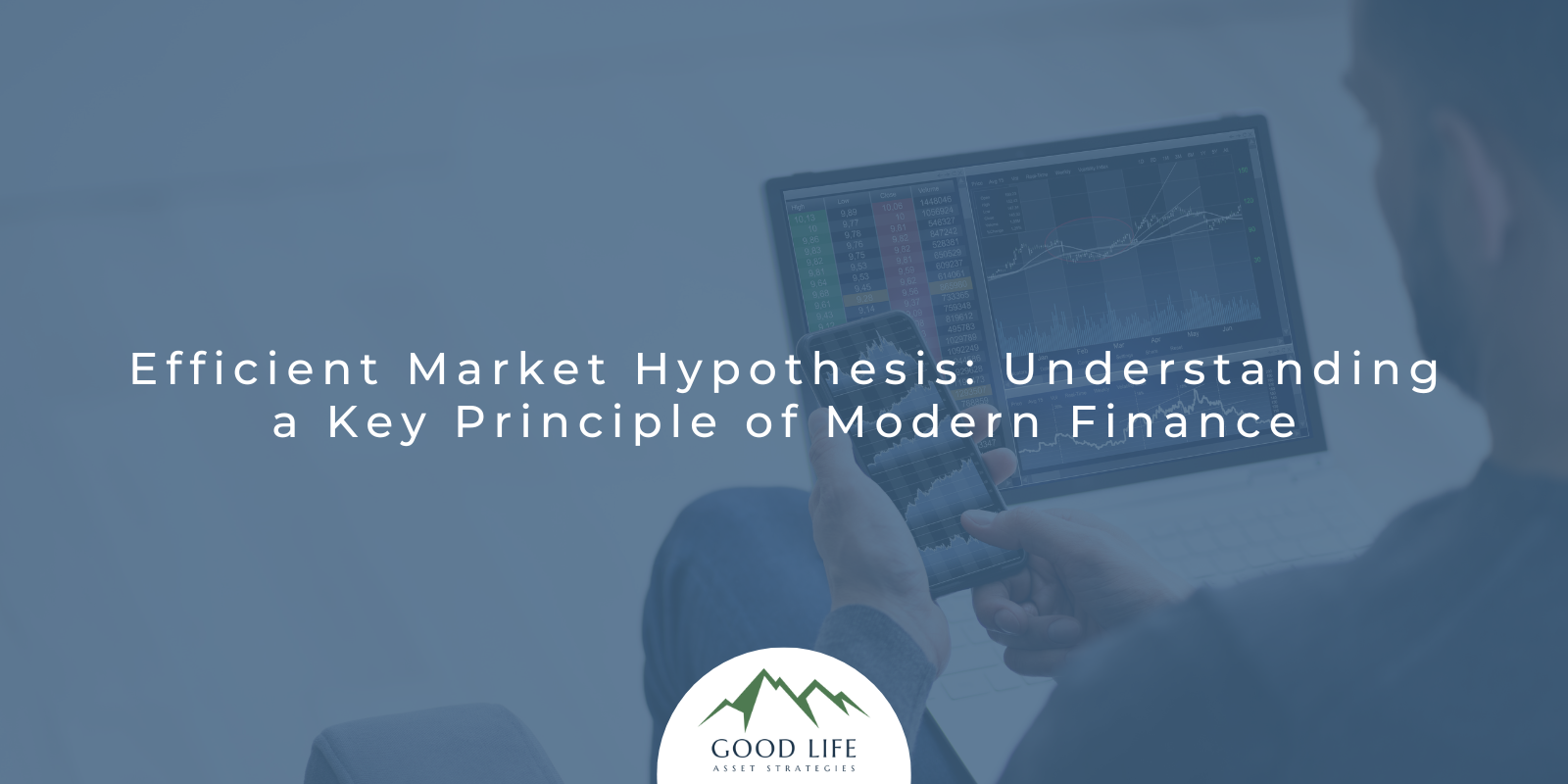- 817-864-8560
- justin@g-las.com
- Mon - Fri: 9:00am - 5:00pm

The Efficient Market Hypothesis (EMH), a fundamental concept in modern financial theory, is premised on the idea that financial markets are ‘informationally efficient.’ At any given time, stock market prices accurately reflect all available information, making it impossible to outperform the aggregate market using information that the market already knows.
Economist Eugene Fama introduced EMH in the 1960s. It argues that the rigorous and competitive nature of financial markets precludes anyone from gaining the upper hand. Proponents of EMH argue changes in stock prices materialize unpredictably because new information arrives randomly. They surmise that following trends or studying historical data for clues about future price movements provides no edge in predicting stock prices.
There are three variations of the EMH: weak, semi-strong, and strong.
The weak form hypothesizes that all past market prices and volume information are embedded in stock prices. Therefore, it proposes that technical analysis, which predicts future price movements based on historical trends, cannot consistently provide returns superior to those attainable from a randomly selected portfolio of stocks.
The semi-strong form of EMH indicates stock prices adjust rapidly to all new public information. Consequently, neither technical nor fundamental analysis, a valuation method using insights from financial statements or macroeconomic indicators, can yield consistently higher returns. It implies that as soon as any new information is released, the market absorbs it, leaving no room for an investor to capitalize and gain abnormal returns.
The strong form of EMH supposed stock prices reflect all information, including public and insider. Thus, even insiders privy to non-public information cannot consistently outperform the market.
It’s crucial to note that EMH does not suggest that attempting to make a profit from investing is futile. Instead, it challenges investors to establish realistic expectations about investment returns. It also underscores that risk and return are inherently intertwined. The only means to achieve higher returns is to take on greater investment risk.
Critics, however, argue that the EMH oversimplifies market realities. They point out numerous anomalies and empirical inconsistencies that the EMH can’t explain, as well as the 2008 Financial Crisis and the tech bubble of the ’90s. They highlight the existence of successful investment managers like Warren Buffet, who managed to outperform the market consistently.
While the debate over the absolute validity of the EMH continues, the EMH provides a fundamental baseline for understanding how markets work. It has shaped the pragmatic investment approach, underpinning the growth of index funds and passive investing.
The Efficient Market Hypothesis, despite its detractors, remains a crucial concept in modern-day financial theory. Its central message reaffirms there is no effortless opportunity in the equity market. Shrewd investment decisions require comprehensive information, robust insight, and a fair share of caution. Success is reaching personal financial goals while being mindful of risk instead of consistently outperforming the market. Therefore, cultivating a comprehensive understanding of EMH is paramount for anyone interested in navigating the intricacies of today’s financial markets.
To discuss your risk tolerance and how that may apply to your view on EMH, contact an experienced investment manager at Good Life Asset Strategies.
The views expressed represent the opinion of Good Life Asset Strategies, LLC. The views are subject to change and are not intended as a forecast or guarantee of future results. This material is for informational purposes only. It does not constitute investment advice and is not intended as an endorsement of any specific investment. Stated information is derived from proprietary and nonproprietary sources that have not been independently verified for accuracy or completeness.